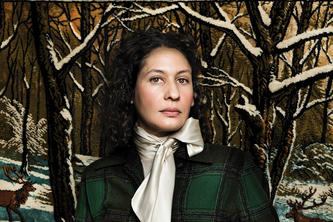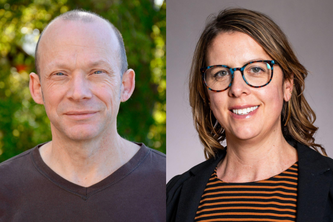
University of Minnesota students’ design for sustainable homes to fill vacant lots in economically challenged North Minneapolis has won top honors in an international competition.
Teams competing in the “Race to Zero” challenge were asked to design cost-effective zero-energy-ready homes for mainstream builders. The winning design uses high-performance features that sharply reduce energy use, and allow for most of the remaining energy use to be offset with renewable energy. The contest is sponsored by the U.S. Department of Energy and this year involved 33 teams from 27 universities in the U.S., Canada, and China. Along with energy-efficiency, the designed homes must be comfortable and attractive as well as affordable.
The U of M team, known as “Team OptiMN,” includes 14 undergraduate and graduate students from several majors, including building science, sustainable design, construction management, and business.
“I am extremely proud of Team OptiMN and how 14 students from four different colleges all came together with the goal of designing the house of the future,” said Collin Coltman, University of Minnesota student and OptiMN team leader. “The multidisciplinary and dynamic nature of the team not only made it possible for members to learn from one another about good home design, but also drove the team to design the Grand Award winning OptiMN Impact Home.”
Team members say they wanted a site that would be meaningful and have a positive impact on the community, so they chose a vacant lot in North Minneapolis. This area was hit hard by the foreclosure crisis followed by a series of tornadoes in 2011 that cut through the heart of the neighborhood. Green Homes North, one of team OptiMN's partners, plans to build 100 energy-efficient homes in this area over a five-year span. The homes are meant to increase both market value and community pride. Team OptiMN made sure their Impact Home followed the Green Homes guidelines, then partnered with Urban Homeworks to design a high performance, affordable, flexible home. Residential Science Resources stepped up to be the team's energy rater partner.
Judges noted that they appreciated the thoroughness of Team OptiMN’s entry -- the thoughtful design, innovative but approachable technologies, solid analysis, as well as the fact that the students took on the challenge of infill, affordable housing, where achieving sustainability is made more difficult on a tight budget.
Read more about the project at: http://bbe.umn.edu/2015-race-zero.
To reach the department, please contact [email protected] or 612-625-5200.
- Categories:
- Agriculture and Environment




